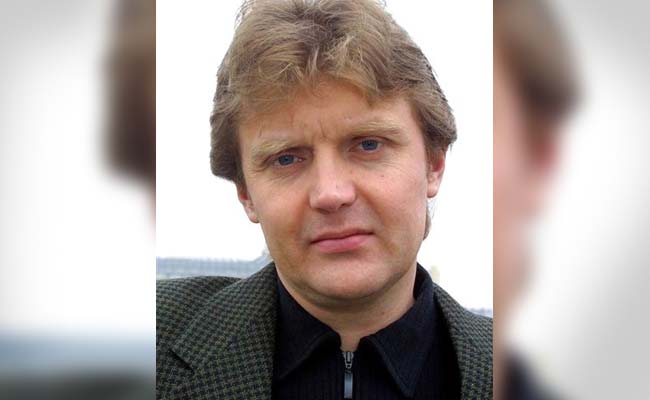
The murder of Alexander Litvinenko (file photo) was probably approved by President Vladimir Putin, Judge Robert Owen said at London's High Court.
President Vladimir Putin "probably approved" the assassination in 2006 of a former Russian spy, a high-profile inquiry in the UK has found.
Here are the 10 big developments in this story:
Former KGB agent Alexander Litvinenko died in London of radiation poisoning. He was an outspoken critic of Mr Putin who fled Russia in 2000.
The FSB (Russian security agency) operation to kill Mr Litvinenko was "probably approved by Mr Patrushev and by President Putin," judge Robert Owen said in a 300-page report at London's High Court.
Nikolai Patrushev was the head of Russia's spy service.
The Kremlin has always denied any involvement in the murder. From his deathbed, Mr Litvinenko told detectives President Putin had directly ordered his killing.
The 43-year-old died less than a month after having green tea laced with the rare radioactive isotope polonium-210 at a fancy London hotel.
He was with two Russian associates when he was poisoned. Moscow has refused requests to extradite them.
"British scientists examined one of the last urine samples collected from him and discovered high levels of polonium, which was once used as a nuclear trigger and is almost exclusively produced in Russia," reports The New York Times.
The judge's finding today links the assassination to the top levels of the Russian government.
"I am satisfied that in general terms members of the Putin administration, including the President himself and the FSB, had motives for taking action against Mr Litvinenko, including killing him in late 2006," the inquiry has found.
Mr Litvinenko fled from Russia to the UK in 2000 along with his wife and son.
The FSB (Russian security agency) operation to kill Mr Litvinenko was "probably approved by Mr Patrushev and by President Putin," judge Robert Owen said in a 300-page report at London's High Court.
Nikolai Patrushev was the head of Russia's spy service.
The Kremlin has always denied any involvement in the murder. From his deathbed, Mr Litvinenko told detectives President Putin had directly ordered his killing.
The 43-year-old died less than a month after having green tea laced with the rare radioactive isotope polonium-210 at a fancy London hotel.
He was with two Russian associates when he was poisoned. Moscow has refused requests to extradite them.
"British scientists examined one of the last urine samples collected from him and discovered high levels of polonium, which was once used as a nuclear trigger and is almost exclusively produced in Russia," reports The New York Times.
The judge's finding today links the assassination to the top levels of the Russian government.
"I am satisfied that in general terms members of the Putin administration, including the President himself and the FSB, had motives for taking action against Mr Litvinenko, including killing him in late 2006," the inquiry has found.
Mr Litvinenko fled from Russia to the UK in 2000 along with his wife and son.

